PCOD or PCOS Which Is More Dangerous?
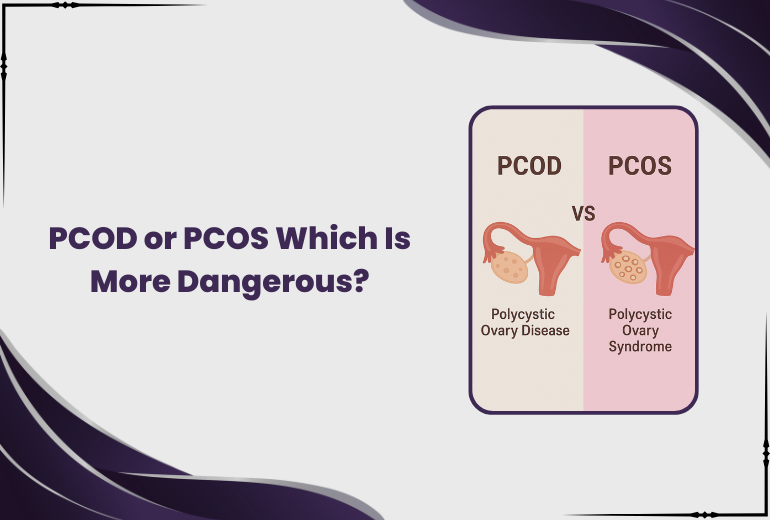
PCOD or PCOS which is more dangerous?
Navigating the complexities of women’s reproductive health can feel overwhelming, especially when terms like PCOD and PCOS come up. If you’re asking, “PCOD or PCOS which is more dangerous?” or “Which is more serious PCOS or PCOD?”, you’re not alone.
These hormonal disorders affect millions of women worldwide, and understanding their differences, risks, and management options is critical for making informed health decisions.
This comprehensive guide dives into recent findings, clarifies which one is more dangerous—PCOS or PCOD—and offers actionable insights to empower you. Let’s explore the nuances of these conditions and how expert care can help.
Interesting Fact: Recent 2025 studies estimate that PCOS affects up to 13% of women of reproductive age globally, while PCOD may impact a similar proportion but is often underdiagnosed due to milder symptoms.
What are PCOD and PCOS? Breaking down the basics
To answer “Which is more dangerous PCOD or PCOS?”, we first need to understand their definitions and how they differ.
- PCOD (Polycystic Ovary Disorder): PCOD is a condition where the ovaries produce immature or partially mature eggs, often forming small cysts. It’s primarily driven by hormonal imbalances, such as elevated luteinising hormone (LH) or mild androgen excess, and is generally less severe. PCOD is often manageable with lifestyle changes and minimal medical intervention.
- PCOS (Polycystic Ovary Syndrome): PCOS is a more complex endocrine disorder characterised by elevated androgen levels, irregular ovulation, and metabolic dysfunction. It meets stricter diagnostic criteria and is linked to systemic health issues, making the question “Which one is more dangerous, PCOS or PCOD?” critical for long-term health.
Recent research highlights that PCOS is not just a reproductive issue but a lifelong condition with metabolic, cardiovascular, and psychological implications, often making it more serious than PCOD.
PCOD or PCOS which is more dangerous based on symptoms?
Symptoms provide a key lens for understanding which is more serious PCOS or PCOD? While both conditions share overlapping signs, their severity and impact differ significantly.
PCOD symptoms
- Irregular periods (e.g., cycles longer than 35 days)
- Mild acne or oily skin due to slight androgen excess
- Excessive hair growth (hirsutism) on the face or body
- Weight gain, typically mild
- Difficulty conceiving due to irregular ovulation
PCOS symptoms
- Severe irregular periods or amenorrhea (no periods for months)
- Pronounced hirsutism or male-pattern baldness
- Severe acne or acanthosis nigricans (darkened skin patches)
- Significant weight gain or obesity, often resistant to diet
- Chronic anovulation leading to infertility
- Mood swings, anxiety, or depression linked to hormonal imbalances
2025 Insight: A recent study published in The Lancet found that women with PCOS are 30% more likely to experience severe symptoms like insulin resistance and hirsutism compared to those with PCOD, underscoring why PCOS is often considered more dangerous. |
When asking, Which one is more dangerous PCOS or PCOD? It is crucial to know that broader and more intense symptoms often lead to greater disruption in daily life and long-term health.
Which is more serious, PCOS or PCOD: Health risks unpacked
To determine PCOD or PCOS which is dangerous?, let’s examine the health risks based on the latest research.
PCOD health risks
- Fertility challenges: Irregular ovulation can complicate conception, but many women with PCOD conceive with lifestyle interventions or medications like clomiphene.
- Mild Metabolic issues: Some women may develop slight insulin resistance, but it’s less prevalent than in PCOS.
- Emotional impact: Symptoms like irregular periods or hirsutism can lead to stress or reduced self-esteem.
PCOS health risks
- Infertility: PCOS is a leading cause of infertility due to chronic anovulation, with 70-80% of affected women facing conception challenges (2025 Journal of Endocrinology).
- Metabolic syndrome: PCOS is strongly linked to insulin resistance (affecting up to 70% of patients), increasing risks of type 2 diabetes, hypertension, and cardiovascular disease.
- Endometrial cancer: Prolonged amenorrhea can cause endometrial hyperplasia, raising cancer risk by 3-4 times compared to women without PCOS.
- Mental health: Women with PCOS have a 50% higher risk of anxiety and depression, per a 2025 BMJ study, due to hormonal imbalances and body image concerns.
- Sleep apnoea: Obesity-related PCOS increases the risk of obstructive sleep apnoea, impacting quality of life.
Given these risks, PCOS is generally considered more dangerous than PCOD due to its systemic effects and higher likelihood of chronic conditions.
Diagnosis: Which one is more dangerous PCOS or PCOD?
Accurate diagnosis is essential to address “Which is more serious PCOS or PCOD?” Both conditions require a combination of clinical evaluation, imaging, and blood tests.
Diagnosing PCOD
- Ultrasound: Detects multiple small cysts on the ovaries.
- Blood tests: Check for mild elevations in LH or androgens.
- Medical history: Assesses menstrual irregularities and symptoms.
Diagnosing PCOS
- Rotterdam criteria (2023 Update): Requires at least two of: irregular periods, hyperandrogenism (elevated androgens), or polycystic ovaries on ultrasound.
- Blood tests: Measure insulin, glucose, lipid profiles, and androgens.
- Metabolic screening: Evaluates for insulin resistance and cardiovascular risks.
Recent Finding: A 2025 study in Fertility and Sterility emphasises that PCOS diagnosis now incorporates advanced biomarkers like anti-Müllerian hormone (AMH) levels to improve accuracy, especially in younger women. |
PCOS’s diagnostic complexity and association with metabolic issues often make it more serious than PCOD.
Managing PCOD and PCOS: Tailored approaches
Effective management is key to answering “Which one is more dangerous PCOS or PCOD?” While both conditions benefit from lifestyle changes, PCOS often requires more intensive interventions.
Managing PCOD
- Lifestyle changes:
- Adopt a balanced diet rich in whole grains, lean proteins, and vegetables.
- Engage in 150 minutes of moderate exercise weekly to regulate hormones.
- Manage stress through mindfulness or yoga to reduce cortisol levels.
- Medications:
- Oral contraceptives to regulate periods.
- Ovulation-inducing drugs like clomiphene for fertility.
- Monitoring: Regular gynaecological check-ups to track symptoms.
Managing PCOS
- Comprehensive lifestyle overhaul:
- Follow a low-glycaemic index diet to manage insulin resistance (e.g., limit refined carbs, increase fibre).
- Combine aerobic and strength training (200 minutes/week) to improve insulin sensitivity.
- Prioritise sleep hygiene to reduce stress and metabolic risks.
- Medications:
- Metformin to address insulin resistance.
- Anti-androgens (e.g., spironolactone) for hirsutism or acne.
- Fertility treatments like letrozole or IVF for conception.
- Long-term monitoring:
- Annual screenings for diabetes, cholesterol, and endometrial health.
- Mental health support through counselling or therapy.
Emerging research suggests inositols (e.g., myo-inositol) can improve ovulation and insulin sensitivity in PCOS, offering a promising adjunct therapy. PCOS’s broader health implications make it more dangerous, requiring lifelong management compared to PCOD’s often milder interventions.
PCOD or PCOS which is dangerous: Long-term outlook
When considering “Which is more dangerous PCOD or PCOS?”, the long-term outlook is critical.
PCOD can often be managed effectively with lifestyle changes, and many women lead healthy lives with minimal complications.
PCOS, however, demands ongoing vigilance due to its metabolic, reproductive, and psychological risks.
A recent study found that women with PCOS have a 2-3 times higher risk of cardiovascular events by age 50 compared to those with PCOD, highlighting PCOS’s greater severity.
Consult Dr. Marwa Elajami for the best gynaecological care
For those grappling with PCOD or PCOS, which is more dangerous, expert care is non-negotiable.
Dr. Marwa Elajami, a distinguished gynaecologist with over 20 years of experience in the Middle East, offers unparalleled expertise at CosmeSurge Dubai and Abu Dhabi.
From lifestyle guidance to advanced fertility treatments, Dr. Elajami empowers women to take charge of their health.
Book a consultation today.

Why Is My Skin Peeling on My Private Area Female
Why Is My Skin Peeling on My Private Area Female – Common Causes Experiencing skin peeling on your private area can feel uncomfortable, worrying, and
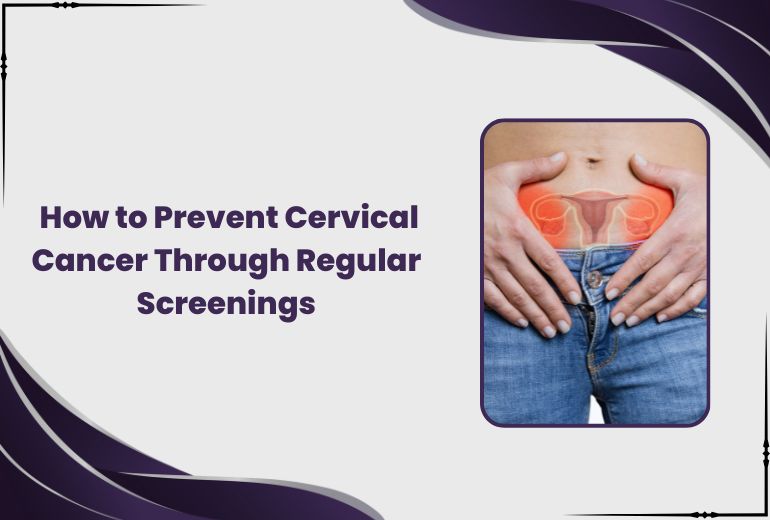
How to Prevent Cervical Cancer Through Regular Screenings
How to Prevent Cervical Cancer Through Regular Screenings As per the World Health Organization, cervical cancer is the fourth common cancer in women worldwide. Despite

PCOD or PCOS Which Is More Dangerous?
PCOD or PCOS Which Is More Dangerous? PCOD or PCOS which is more dangerous? Navigating the complexities of women’s reproductive health can feel overwhelming, especially
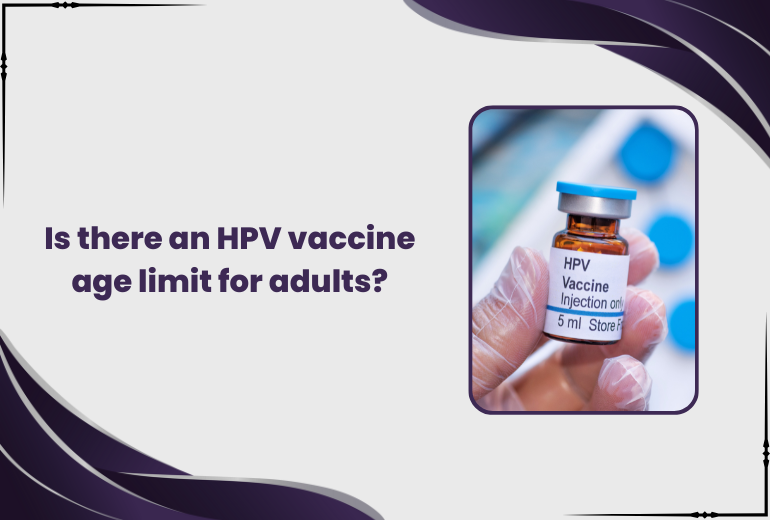
Is there an HPV vaccine age limit for adults?
Is there an HPV vaccine age limit for adults? It’s a common misconception that the Human Papillomavirus (HPV) vaccine is exclusively for teenagers. While it’s
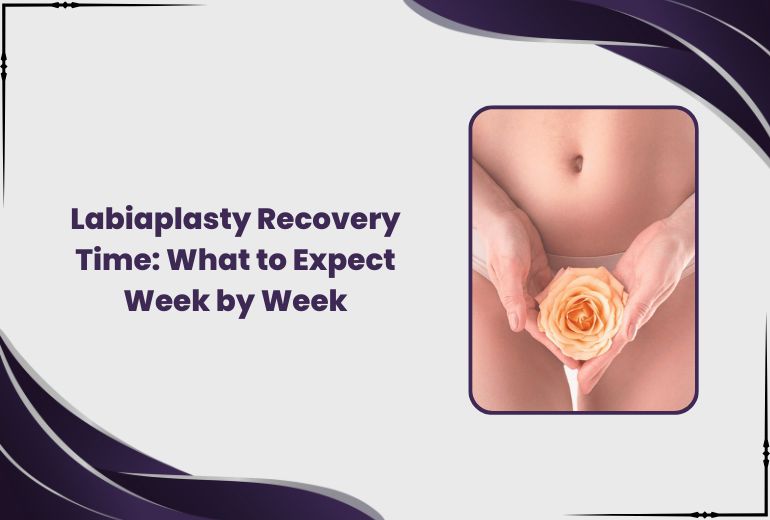
Labiaplasty Recovery Time: What to Expect Week by Week
Labiaplasty Recovery Time: What to Expect Week by Week Labiaplasty Recovery Time: A Gentle Journey Toward Healing and Confidence! Undergoing labiaplasty can be an empowering
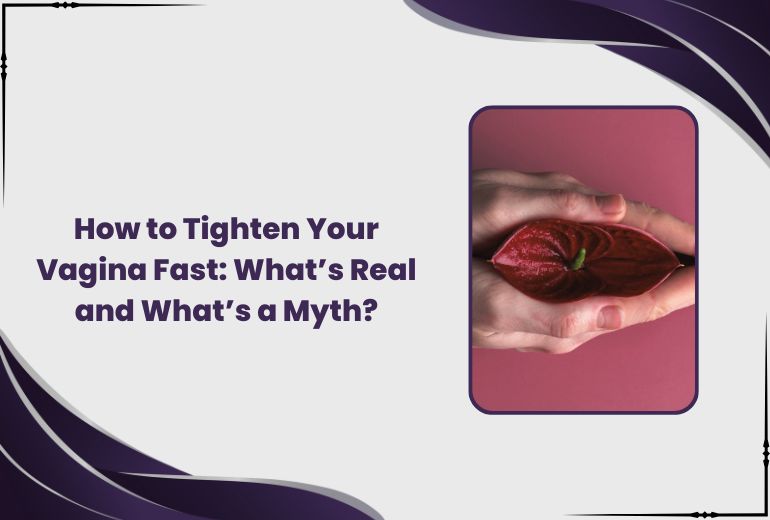
How to Tighten Your Vagina Fast: What’s Real and What’s a Myth?
How to Tighten Your Vagina Fast: What’s Real and What’s a Myth? For many women, vaginal laxity can feel like an awkward topic. But the
